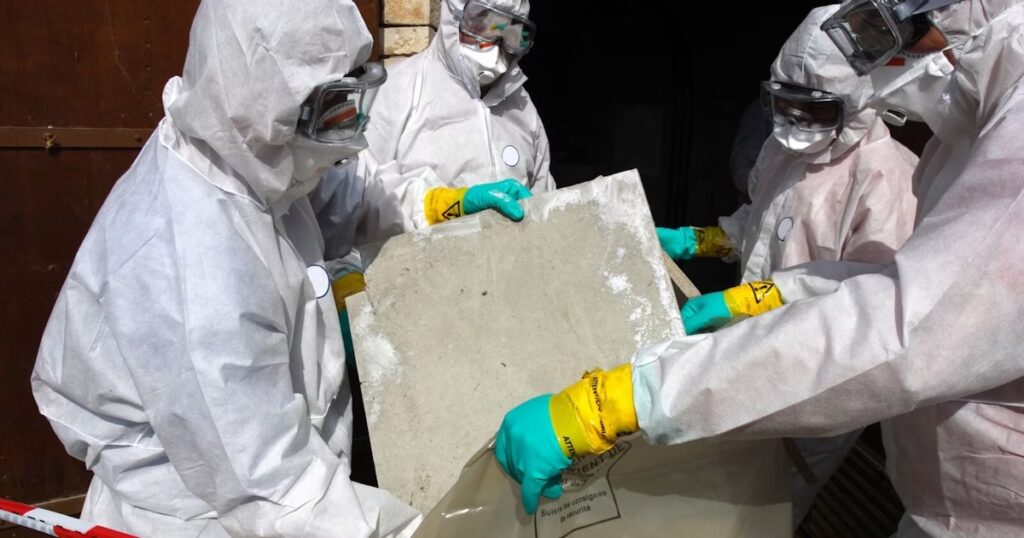Legal Requirements for Asbestos Surveys: What You Need to Know

Are you a property owner or manager? If so, understanding asbestos regulations is crucial for ensuring safety and compliance. This blog will guide you through the legal requirements for asbestos surveys, explain why they matter, and help you stay compliant with the law. By the end, you’ll be well-equipped to handle asbestos survey -related concerns confidently.
What is Asbestos?
Definition and History
Asbestos is a naturally occurring mineral known for its heat resistance, strength, and insulating properties. Widely used in construction materials throughout the 20th century, it was later discovered to pose significant health risks.
Health Hazards of Asbestos
When disturbed, asbestos fibers can become airborne and inhaled, leading to serious illnesses like asbestosis, lung cancer, and mesothelioma. These health risks prompted regulatory measures to control and manage asbestos in buildings.
Why Surveys are Necessary
Surveys identify the presence of asbestos-containing materials (ACMs) within structures, ensuring that proper precautions are taken during renovations, demolitions, or regular maintenance. Without these surveys, occupants and workers may face unnecessary exposure to harmful fibers.
Types of Asbestos Surveys
Management Surveys
Aimed at managing asbestos in an occupied building, management surveys involve minimally intrusive inspections to locate ACMs. These surveys help plan regular maintenance without causing harm or disturbance to the occupants.
Refurbishment and Demolition Surveys
Required before any major renovation or demolition work, these surveys are more invasive. They involve destructive inspection methods to identify all ACMs that may be disrupted during the work. This ensures that necessary safety precautions are in place beforehand.
Re-inspection Surveys
Periodic re-inspection surveys monitor the condition of known ACMs. They help ensure that the materials remain undisturbed and are still safe, allowing property managers to take timely action if conditions change.
Legal Framework Governing Asbestos Surveys
Regulations and Guidelines
Several regulations govern asbestos management, including the Occupational Safety and Health Administration (OSHA) standards and the Environmental Protection Agency (EPA) guidelines. These laws mandate that property owners must conduct appropriate asbestos surveys and manage any identified ACMs responsibly.
Penalties for Non-compliance
Failure to comply with asbestos regulations can result in hefty fines, legal action, and increased liability. Ignoring these requirements not only endangers lives but also exposes property owners to severe financial and legal repercussions.
Importance of Compliance
Compliance with asbestos regulations protects the health of building occupants and workers. It also safeguards property owners from legal and financial risks, ensuring that the premises remain safe and habitable.
Who Needs to Conduct Asbestos Surveys?
Property Owners and Managers
Property owners and managers are directly responsible for ensuring that their buildings comply with asbestos regulations. They must arrange for regular surveys and take the necessary steps to manage any identified ACMs.
Employers
Employers must protect their employees from asbestos exposure by conducting surveys in workplaces. They should ensure that their premises are safe and that any potential asbestos risks are managed effectively.
Contractors and Renovators
Before starting any renovation or demolition work, contractors must conduct thorough asbestos surveys. This helps them plan their work safely and avoid disturbing any ACMs, preventing potential health hazards.
How to Choose a Qualified Surveyor
Certification and Training
Ensure that the surveyor you choose is certified and has received proper training in asbestos management. Reputable organizations like the National Institute for Occupational Safety and Health (NIOSH) offer recognized certification programs.
Experience and Reputation
Look for surveyors with a proven track record and positive reviews. Experienced professionals are more likely to conduct thorough surveys and provide accurate assessments.
Comprehensive Services
Choose a surveyor who offers a range of services, including management surveys, refurbishment and demolition surveys, and re-inspection surveys. This ensures that all your asbestos-related needs are met by a single, reliable provider.
Steps to Conducting an Asbestos Survey
Initial Assessment
The first step is to conduct an initial assessment to determine the scope of the survey required. This involves gathering information about the building’s age, construction materials, and previous renovations.
Detailed Inspection
Next, a detailed inspection is carried out to locate and identify any ACMs. This may involve sampling and laboratory analysis to confirm the presence of asbestos.
Reporting and Recommendations
After the inspection, a comprehensive report is prepared, detailing the findings and providing recommendations for managing any identified ACMs. This report serves as a crucial document for ensuring ongoing compliance and safety.
Safety Measures During Surveys
Protective Equipment
Surveyors must wear appropriate protective equipment, such as respiratory masks and disposable coveralls, to prevent exposure to asbestos fibers.
Controlled Sampling
When taking samples, it’s essential to use controlled methods to minimize disturbance and prevent the release of asbestos fibers into the air.
Proper Disposal
Any materials containing asbestos must be disposed of according to regulatory guidelines. This ensures that asbestos waste does not pose a risk to the environment or public health.
Conclusion
Understanding the legal requirements for asbestos surveys is vital for property owners, managers, and contractors. By conducting regular surveys and managing ACMs responsibly, you can protect the health of building occupants and avoid legal and financial repercussions. If you need assistance navigating asbestos regulations, consider consulting a qualified surveyor to ensure compliance and safety.
By staying informed and proactive, you can create a safer environment for everyone involved. Don’t wait—take the necessary steps today to manage asbestos effectively and responsibly.






